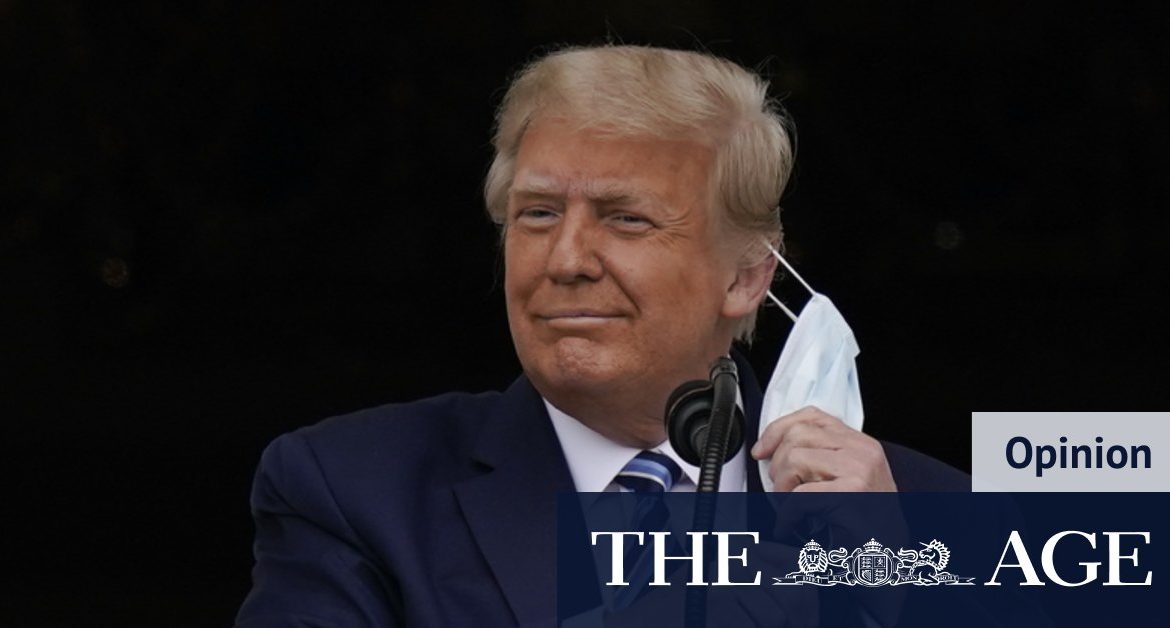While the Universal Declaration of Human Rights recognises freedom of speech, it is a qualified freedom, one that can be limited by law to meet “the just requirements of morality, public order and the general welfare in a democratic society”. And this is why social media must be subjected to government regulation. Self-regulation is not enough.
As the Australian Medical Association has said, “the internet has the potential to significantly magnify health misinformation campaigns, as people can easily absorb misinformation delivered directly to them through advertising, celebrity influencers, and people in positions of power. We have seen this with the anti-vaccination movement, and the countless conspiracy theories about the COVID-19 pandemic that circulate constantly on the internet.”
Masks have come to epitomise the conflict between individual rights and rights of the community.Credit:Bloomberg
Democratic systems suffer a gross imbalance between the rights of individuals and companies, and the rights of the community. The mask epitomises this conflict.The AMA has strongly condemned statements by Coalition members which detract from vaccination and mask-wearing, and called for a government-funded campaign to counter misinformation about health. It’s critical that we address these concerns.
Yet the ACCC Digital Platforms report in 2019, which addressed issues raised by the growth of social media, made little mention of human health in its 623 pages.
The commissioner must also be absolutely independent, to separate decisions from any semblance of interference by government members. This is especially important given the apologetic platitudes offered by the Deputy Prime Minister this week for the misinformation and disinformation spread on social media by some parliamentarians.
Loading
Social media causes many other harms to health too. These range from behavioral addiction, depression, and distortion of self-image and self-importance through to misinformation on a range of specific health disorders. We need an independent review into the health issues that result from the immense power without responsibility of social media platforms. The clear expertise, commitment and dedication of the health professions during this pandemic indicate they should be given this remit by government, together with mechanisms for their representatives to work closely with the eSafety commissioner to determine how best to address and avoid these harms.
Dr David Shearman is an emeritus professor of medicine at the University of Adelaide.







